The world has been infected and halted our society as we know it. Yet, our hyper-capitalist mindset lives on.
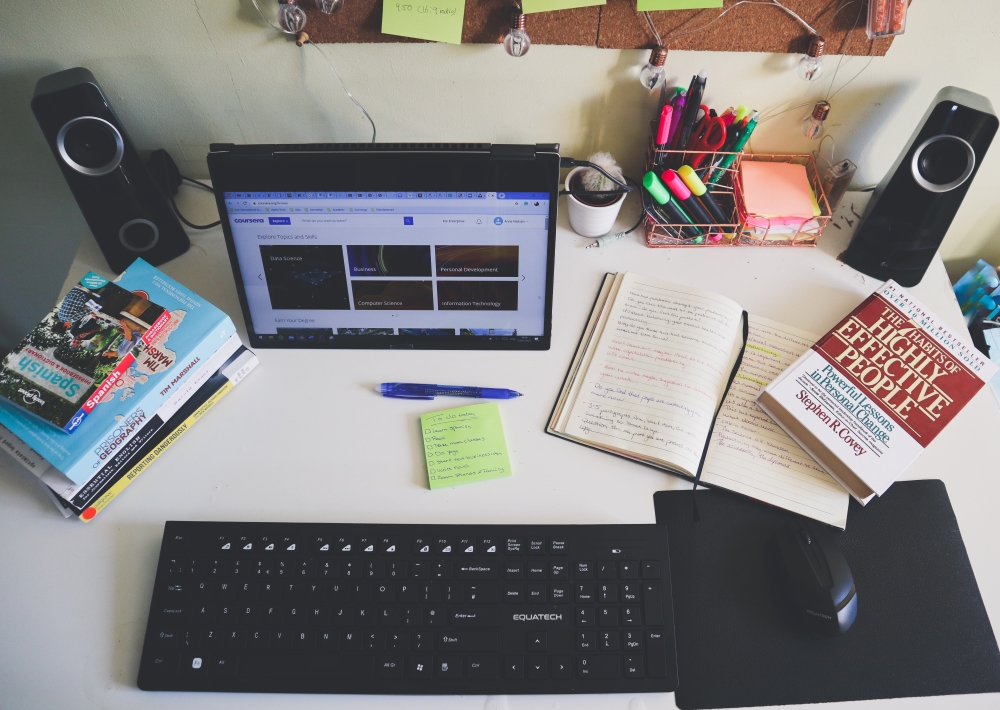
Bryony opens her eyes; the sun is shining through her blinds in her ground-floor window. She looks at her phone, it is 9:30 am, and it is time to get up. She forcefully sits up from the bed, “Maybe I’ll start today,” she thinks to herself. Bryony needs to be productive and get a new job, as she lost her previous livelihood to a microscopic parasite.
The small parasite which was only but a faint echo that rung from the east in early December 2019. Has now blown into a full global pandemic that has paralysed the world. Country after country was forced to impose strict lockdown measures on its citizens, inevitably, altering everyone’s life.
“I feel like time is going really fast even though everything is stood still” sights Bryony, “So I force myself to wake up at 9:30 am these days then I take my run and then all of a sudden its bedtime!”
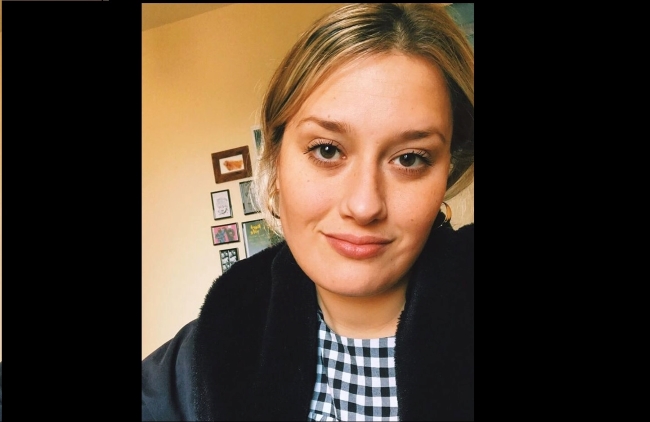
Photo Credit: Bryony Adams
Bryony Adams, 27, lives in a shared house in the suburban area of Adamstown in Cardiff. Two months ago, she was going to work, going out, socialising, and plodding along with her day-to-day life. But now, Bryony is confined within her four walls, trying to be as productive as she can.
“My productivity is awful” she exclaims, “I find it really difficult at the minute. I need to be doing job applications and it’s really important that I do it, but I just can’t bring myself to do it.” At the beginning of the lockdown, she was still employed but was eventually let go as her project was put on hold.
With the lockdown, she has time to work on job applications, but she struggles. “I feel constant guilt, but I trick myself into thinking ‘it’s okay behaviour until I try to sleep at night and that’s when she gets me!” Bryony sighs.
All other desire to achieve has gone out the window
Bryony Adams
So, she keeps herself busy with fitness and diet. “I feel like it, cause that’s the only thing I have control over at the minute.” She says as she is getting ready to go out for her daily run and adds: “that and making my bed, I make sure I do that.”
Productivity is a tool for control
Control is perhaps what is our antidote to these uncertain times that we are in, according to Adam Print, a life coach and founder of Enhance Coaching in Cardiff. He explains that: because people are suddenly out of a routine. The ability to tick things off lists and to achieve tasks is somehow putting them in the driver’s seat again.
“Being productive and assemblance is a way of some form of control,” Adam explains from his kitchen. “People have a preference in being in a routine and creating rules and putting pressure on themselves
“If people just focus on what is under their control, they will be able to drop a lot of stuff, because so much of this, is worrying about things that they don’t have any control over.”
Research confirms this notion. A study revealed that if we focus on what we can control, presently. It led to better adjustments under stressful and traumatic events. This is what’s called ‘Perceived control‘.
Adam has 15 years of experience coaching in a wide variety of industries. Specialised in both personal development and career support, he has worked with numerous clients. Many who have experienced a high demand for achievement.
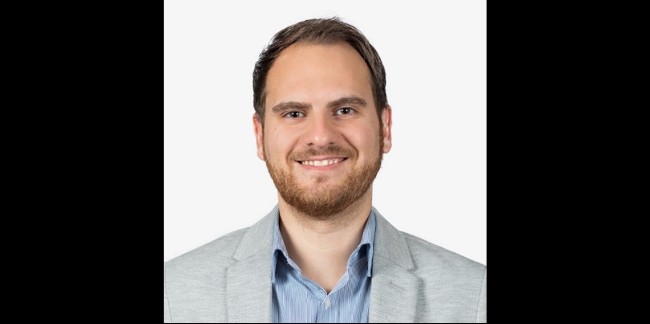
Photo Credit: Enhance Coaching
“We focus so much on productivity anyway,” Adam explains, “people are already in the mindset that they got to achieve this, got to do this and having done this to be satisfied.”
He elaborates: “everything people try and achieve, they target it as it is black and white, but the world is grey.”
We are programmed to ‘do’ rather than think and we are feeling guilty when we are not ‘doing’.
Adam Print
Adam believes the difference between our pre-lockdown achievement-expectations and what we expect from ourselves now, is ‘more time’. “Especially at the beginning of lockdown, people thought I got all this time, I must be able to do this, I should do this.”
Should we be encouraged to be productive or should we reflect?
There is no hiding from the fact that this pandemic has had a huge impact on people’s mental health. Millions of people are facing economic turmoil, uncertainty, fear and distress by physical isolation. While others are afraid of the infection itself, according to a recent World Health Organisation report.
So endorsed by the UK government, by engaging in activities and learning new skills; is a way to look after our own wellbeing. However, if taken too seriously, the cultural obsession with capitalistic productivity hijacks us. Evidence of this fact is circulating on social media, a motivational post, that is meant to inspire.
“It’s not helpful,” says Adam, he had also been a witness to this tweet, he clarifies “it is good for people to be encouraged to do something with their time, but what this [tweet] is not allowing people to do, is having space to think and process.”
And, understandably, we have perhaps not given ourselves the time to do this. We are, after all, grieving the loss of a way of life; we are collectively going through a trauma.
“Accepting big changes is like grief really, we go through a cycle,” he says whiles eagerly demonstrating the Kubler-Ross grief curb.
However, with motivational messages such as this, Adam believes it is pushing the notion that we have to go straight from denial to acceptance, without any processing. This is what creates more pressure and allowing the guilt to consume us if we do not achieve through productivity.
“But” he adds, “this depends on the person, because, that tweet works for me, I do have more time and I have things I want to.”
He is not alone in this thought.
About 400 miles further north, Wenxian is sitting on her couch in her rented flat in Edinburgh. She is sipping her newly brewed tea, whilst her laptop is slowly turning on. This is yet another day she spends inside her flat; another day she spends in front of the screen.
Wenxian Mu, 24, living in Edinburgh and a former Sociology student at the University of Edinburgh. She was enjoying her gap year when the pandemic suddenly slammed the breaks on everything.
“I am doing something [activities] not because I want to be productive, I just want something to do, something to occupy my mind,” she explains. Wenxian has accepted her new lifestyle, but it wasn’t straight forward, it was a rollercoaster.
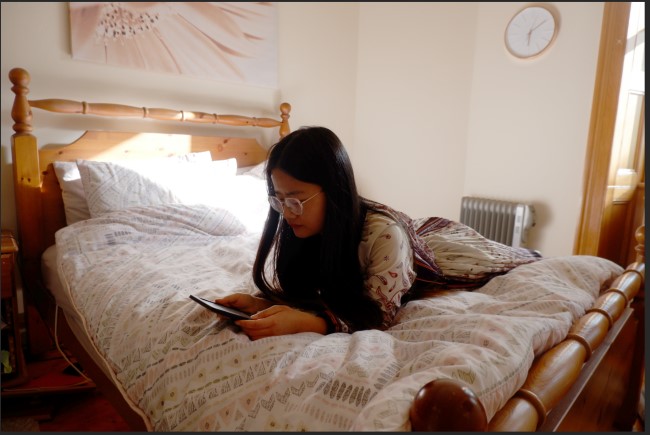
Photo Credit: Wenxian Mu
“I went through the emotional part,” she admits whilest sipping her tea, “in the beginning I was in a really miserable emotional place.”
Not only was the uncertainty in her life down to the lockdown, but also down to where she would go. Initially, her flight was booked to go back home to China, but this was cancelled last minute. So, she had to stay.
“So, I started to accept my new situation, and make new plans for myself,” she says. She eventually moved to a new flat in Edinburgh, which gave her more space and fuelled her productivity spirit.
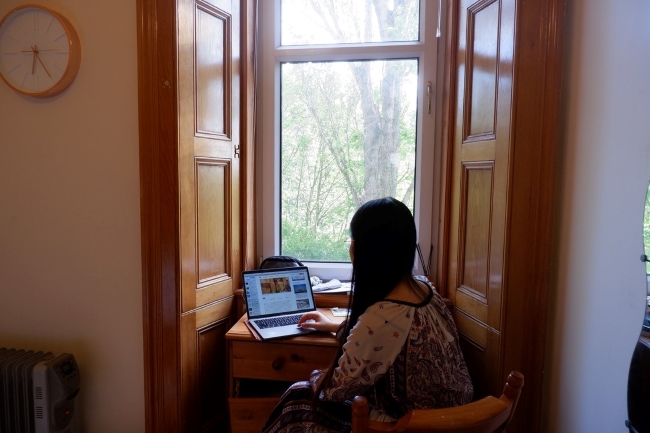
Photo Credit: Wenxian Mu
An eager learner: she studies French, read journals, writes articles, draws, and dances. “I tell myself, that I have to do three things per day, like an hour each,” she says.
It is a coping mechanism for her, a form of control, “you are like a computer and it’s like you are writing a code for yourself,” she muses.
She also does not seem to be putting herself under the same amount of pressure as some do, yet she does not escape the ‘guilt’.
“I do sometimes feel a little bit guilty” she laughs, “Just enjoy your day, I always think, even if I don’t think I follow my schedule today, I will do it tomorrow.”
I am the director of what I want to do.
Wenxian Mu
She gives herself a day or two off, then she resumes her carefully structured daily plan. Wenxian proudly declares: “I don’t complain about what I have to do. I just feel like this is something I want to do”
Perhaps this self-declared pressure and our inner critic that screams at us, when we have “failed to meet our goals, is over the top?
“Focus on progress rather than achievements” nods Adam, “stop focusing on achievements being a success,
“Direct your attention on the progress you have made, this measured success and you will be moving forward.”
These comforting considerations would perhaps be beneficial for Bryony, now back from her daily jog.
She hopes once this pandemic is over, productivity will be resumed: “I’m just waiting for that day where I can sit at my laptop and bash out all these job applications, but perhaps, now you’ve made me think about it – I wasn’t that productive in that area beforehand,” she laughs.
“Maybe I can become a professional dancer,” she muses. “Although I’ve not been productive in terms of applying for jobs, I’ve certainly done a lot of dancing around my room. Just hope my neighbours like Prince, that’s all I can say.”
Life coach Adam Print shares top tips on avoiding feeling guilt during for not meeting your inner-critic.